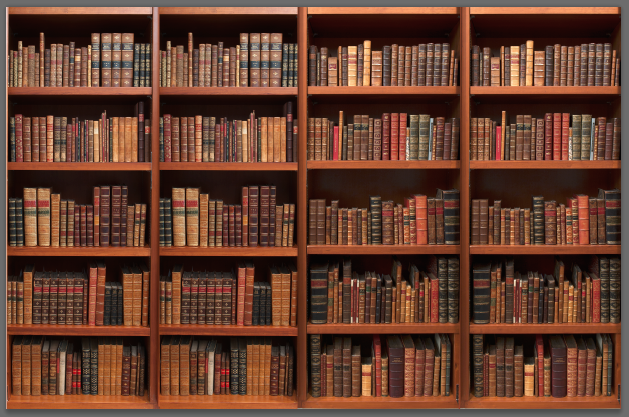
This blog entry is part of a series introducing LVA employees and exploring what they do day-to-day. If you are interested in reading more like it, entries in this series are collected under the tag 7 Questions. Other entries discussing the internal work of the Library of Virginia are filed under the category “The Stacks”.

Deanna Chavez
What is your background?
I moved around quite a bit after I graduated from college and had a variety of run-of-the-mill jobs. I didn’t get my library degree until I was much older, when online catalogs had already replaced card catalogs in most libraries. I worked in a small academic library for five years as head of the Technical Services Department, which included acquisitions, cataloging, and processing, before I came to the Library of Virginia. It was a perfect first job because it gave me an overview of how a library functions as a whole, but I knew that cataloging was what I really wanted to do, so when jobs became available at LVA, I applied.
How do you explain what you do to others?
The first time I told someone that I worked in Special Collections at the Library of Virginia they thought I hunted down library patrons to collect unpaid fines. I try to be more descriptive now when someone asks me that question. Most people are familiar with the online catalog, so I explain that I make an electronic record for each book, and that record contains information that makes the book available and searchable in the library catalog. For modern, mass-produced books, reader interest is primarily in a certain author or title and the topics covered in the text. Much of special collections cataloging deals with books printed in the hand-press period (roughly pre-1800). These books are often studied as objects, and a detailed physical description is necessary to help book historians and others who research the history of printing and binding. Provenance—gathered through information in bookplates, autographs, and notes—is also an important aspect of rare materials cataloging.
Have you held other positions at the Library? If so, what?
When I was in library school I had a semester’s internship at LVA, and when I was hired full time I worked as a monographs cataloger with general collections books.
How has technology affected your current job?
Technology has a huge impact on almost everything I do, and it changes constantly. Cataloging rules and practices are evolving rapidly, as the library community attempts to make our records available and visible in Internet search engine results. This causes changes in the cataloging software we use and how we input data. Most of our cataloging reference books and other resources are available online, which means that it is easy to find help quickly.
Describe your best day at the Library of Virginia.
It is not an exaggeration to say that I learn something new every day, and that’s my idea of a perfect job, so in that sense, every day is a best day. For example, when I started cataloging the library’s collection of stereographs I was able to research photographers and the evolution of the cards’ appearance through the period they were popular in order to assign approximate dates to undated cards. I added to my knowledge of Virginia history through describing the scenes on the cards, and I explored other library collections to determine best practices for cataloging our collection.
What was your first paid job?
I was a waitress at Johnny Appleseed Restaurant, a fine dining establishment near the New Market Battlefield. We called the cook “Mom.” I’m not sure why, because she was definitely not maternal, and I remember that she chain-smoked while she cooked. Since I had only ever eaten at the Broadway and Timberville restaurants and had no concept of what good service was, I’m sure I was pretty terrible at it. Or maybe just typically terrible for a high-schooler working at a tourist restaurant.
What would people be surprised to find out about you?
I have a very dark sense of humor. (I realize this will not be a surprise to everyone.)






